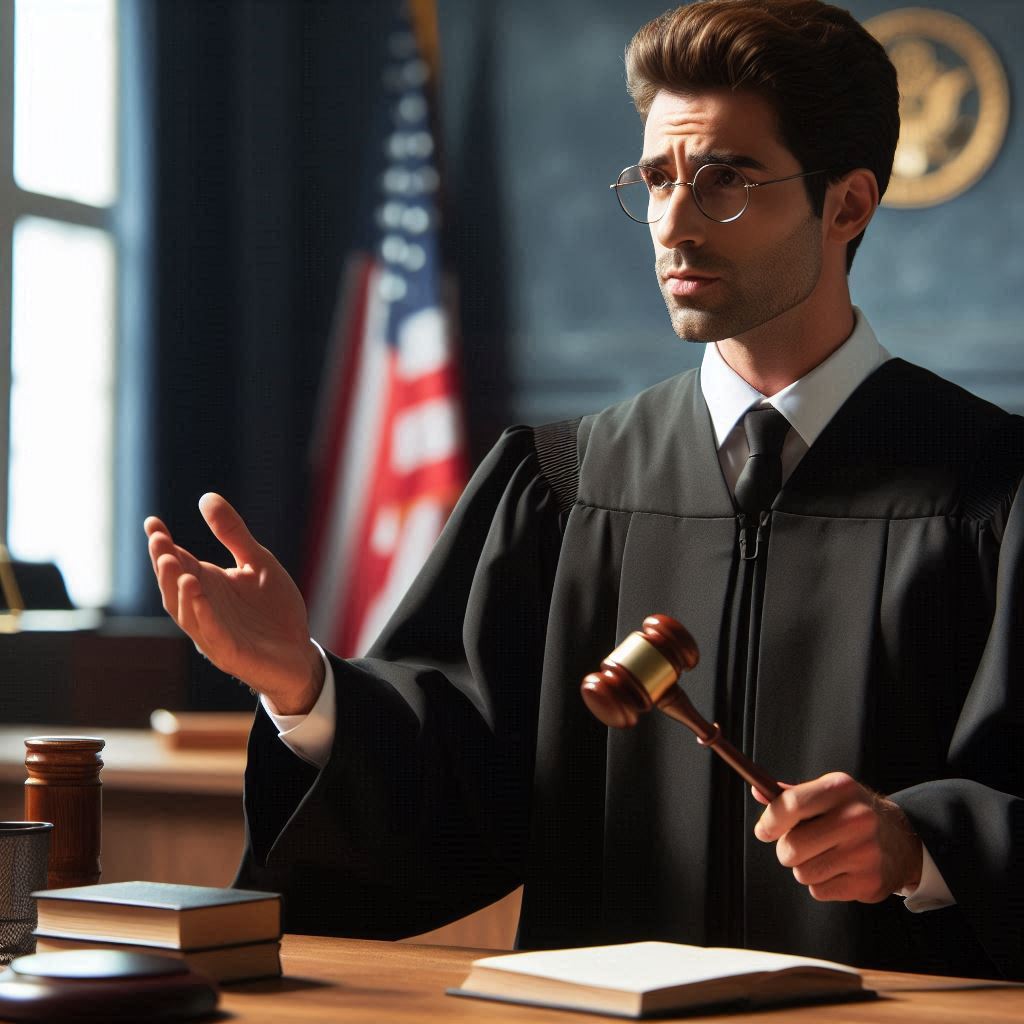Introduction
In the realm of the juvenile justice system, prosecutors wield significant influence and responsibility.
Their role extends beyond legal advocacy to shaping the futures of young offenders.
Understanding the nuances of this role is essential for comprehending how juvenile cases are handled within the legal framework.
Prosecutors in the juvenile justice system are tasked with upholding justice while considering the unique circumstances of young offenders.
They aim not only to hold juveniles accountable for their actions but also to rehabilitate and reintegrate them into society.
This dual mandate reflects a broader societal goal of balancing accountability with the potential for rehabilitation in juvenile justice.
Throughout this blog post, we will delve into the multifaceted role of prosecutors in juvenile cases.
We’ll explore the legal and ethical considerations that guide their decisions.
Additionally, we’ll examine the impact of prosecutorial strategies on juvenile offenders, victims, and communities.
Understanding these dynamics is crucial for stakeholders invested in juvenile justice reform and effective rehabilitation practices.
Key points to be covered include the procedural aspects of juvenile court proceedings where prosecutors play a pivotal role.
We’ll discuss the charging decisions prosecutors make and how these decisions can influence case outcomes.
Moreover, we’ll analyze the role of plea bargaining in juvenile cases and its implications for justice and fairness.
Definition and Responsibilities of Prosecutors in the Juvenile Justice System
Prosecutors in the Juvenile Justice System play a crucial role in ensuring justice for young offenders.
They are responsible for making decisions that can impact the lives of juveniles involved in criminal cases.
Definition and Responsibilities of Prosecutors in the Juvenile Justice System
- Prosecutors in the Juvenile Justice System are legal professionals who represent the state in cases involving juveniles.
- They are responsible for reviewing police reports and evidence to determine whether to file charges against a juvenile.
- Prosecutors have the authority to negotiate plea deals with juvenile offenders as an alternative to going to trial.
- They must consider the best interests of the juvenile, as well as the safety of the community, when making decisions.
- Prosecutors also work closely with law enforcement, probation officers, and other professionals involved in juvenile cases.
Role in Determining Whether to File Charges, Negotiate Plea Deals, or Go to Trial
- One of the key responsibilities of prosecutors in the Juvenile Justice System is to decide whether to file charges against a juvenile.
- Prosecutors must carefully review the evidence to determine if there is sufficient proof to proceed with a case.
- They also consider the severity of the offense, the juvenile’s criminal history, and other mitigating factors before making a decision.
- If prosecutors believe that a plea deal is in the best interest of the juvenile and the community, they may negotiate an agreement with the defense.
- In cases where a plea deal is not possible or appropriate, prosecutors may opt to take the case to trial.
Overall, prosecutors in the Juvenile Justice System play a critical role in ensuring that justice is served in cases involving young offenders.
Their decisions can have a profound impact on the lives of juveniles, as well as the safety of the community.
It is essential for prosecutors to approach their responsibilities with fairness, compassion, and a commitment to upholding the principles of justice.
Read: The Future of Court Reporting: Trends to Watch in the USA
Impact of Prosecutors on Juvenile Cases
How Prosecutors’ Decisions Can Affect the Outcome of Juvenile Cases
Prosecutors wield significant influence in juvenile cases, shaping their outcomes profoundly.
They determine whether charges are filed and what charges are pursued.
This decision-making impacts the trajectory of the case and potential consequences for the juvenile offender.
Prosecutors weigh factors such as the severity of the offense, the juvenile’s criminal history, and mitigating circumstances.
Their decisions can lead to diversion programs, probation, or more severe measures like detention.
By deciding on charges, prosecutors shape the legal framework within which juvenile cases unfold.
They determine if rehabilitation or punitive measures are prioritized.
The Potential Implications of Prosecutors’ Actions on the Lives of Juvenile Defendants
Prosecutors’ actions can significantly impact the lives of juvenile defendants.
Charging decisions influence a juvenile’s legal standing and future opportunities.
A conviction or adjudication can affect educational prospects and employment opportunities.
Conversely, diversion programs or rehabilitative measures can offer a chance for redirection.
Prosecutors’ decisions also affect victims and communities.
Fair and balanced handling of cases can promote trust in the justice system.
Conversely, overly punitive measures can exacerbate recidivism and harm rehabilitation efforts.
Prosecutorial discretion plays a crucial role in shaping outcomes.
It allows prosecutors to tailor responses to individual cases.
This discretion must be exercised judiciously, considering both the severity of the offense and the juvenile’s circumstances.
Collaborating with defense attorneys and stakeholders ensures comprehensive consideration of all factors.
The goal is to achieve justice while promoting rehabilitation and accountability.
Balancing these objectives requires a nuanced approach to juvenile justice.
Prosecutors must weigh the interests of public safety with the juvenile’s potential for rehabilitation.
All in all, prosecutors’ decisions in juvenile cases carry significant weight.
Their actions can shape the lives of juvenile defendants and impact broader societal outcomes.
Understanding the implications of prosecutorial decisions is crucial for stakeholders in the juvenile justice system.
It underscores the need for fair, equitable, and informed decision-making to ensure positive outcomes for juvenile offenders and communities alike.
Read: Tips for New Court Reporters: Navigating the U.S. Legal System
Challenges Faced by Prosecutors in Handling Juvenile Cases
The Unique Challenges that Prosecutors Encounter When Dealing with Juvenile Offenders
Prosecutors in juvenile cases face distinctive challenges compared to adult cases.
Juvenile offenders often come with complex backgrounds.
Assessing their maturity and culpability is crucial.
Balancing accountability with the understanding of youthful indiscretion is challenging.
Prosecutors must navigate confidentiality laws that protect juveniles’ identities.
Limited resources for rehabilitation programs pose challenges in achieving positive outcomes.
Handling cases involving minors requires sensitivity to developmental stages and family dynamics.
The Balance Between Seeking Justice and Promoting Rehabilitation for Juveniles
Prosecutors must strike a delicate balance between justice and rehabilitation in juvenile cases.
Holding juveniles accountable for their actions while fostering growth and rehabilitation is paramount.
Emphasizing education and intervention over incarceration can lead to better long-term outcomes.
Collaboration with community resources and social services is essential for holistic support.
Avoiding harsh penalties that may hinder a juvenile’s future prospects is crucial.
Redirecting youthful offenders toward positive paths benefits both individuals and society.
Understanding the unique challenges prosecutors face in juvenile cases is crucial for improving outcomes.
Balancing accountability with rehabilitation promotes fairness and positive development.
Read: A Day in the Life: What to Expect as a U.S. Court Reporter

Discretionary Power of Prosecutors in Juvenile Cases
Prosecutors play a crucial role in the juvenile justice system, as they have the discretion to decide how to handle each case.
This discretionary power gives them the authority to make important choices that can impact the outcome of a juvenile’s case.
Extent of Prosecutors’ Discretion
- Prosecutors have the authority to decide whether to file formal charges against a juvenile or to divert them from the formal court process.
- They can determine the severity of the charges brought against a juvenile, which can significantly impact the potential consequences they face.
- Prosecutors have the discretion to negotiate plea deals with juvenile offenders, offering them reduced charges or sentences in exchange for a guilty plea.
- They can also choose to pursue alternative sentencing options for juveniles, such as probation, community service, or counseling programs.
Potential Ethical Implications of Prosecutorial Discretion
- One potential ethical concern is the risk of bias or discrimination in how prosecutors exercise their discretion, leading to unequal treatment of juveniles based on factors such as race or socioeconomic status.
- Prosecutors may face pressure to secure convictions, which could influence their decisions to pursue harsher charges or sentences for juveniles, even when alternative options may be more appropriate.
- There is also the risk of prosecutors prioritizing their own interests, such as building a successful conviction record, over the best interests of the juvenile involved in the case.
- Additionally, prosecutors’ decisions to offer plea deals or pursue diversion programs may raise questions about whether they are truly seeking justice or simply seeking to expedite cases through the system.
Overall, prosecutors’ discretionary power in juvenile cases must be carefully monitored to ensure that it is exercised ethically and in the best interests of the juveniles involved.
Transparency, accountability, and adherence to legal standards are essential to uphold the integrity of the juvenile justice system.
Read: Case Law Basics: Noteworthy US Legal Precedents
Strategies Used by Prosecutors to Address Juvenile Offenses
The Approaches that Prosecutors May Take to Address Juvenile Crimes
Prosecutors employ diverse strategies to address juvenile offenses effectively.
They prioritize rehabilitation over punishment where appropriate.
Assessing individual circumstances helps tailor responses to meet juvenile needs.
Restorative justice principles focus on repairing harm and fostering accountability.
Prosecutors collaborate with defense attorneys and juvenile court officials to develop comprehensive case plans.
Emphasizing diversion programs offers alternatives to traditional court proceedings.
These programs aim to prevent future delinquency through educational and community-based interventions.
Diversion Programs, Rehabilitation, and Other Alternatives to Incarceration
Diversion programs play a crucial role in juvenile justice by offering tailored interventions for youthful offenders.
These programs redirect juveniles away from formal court processes.
They emphasize education, counseling, and community service as constructive alternatives.
Rehabilitation efforts focus on addressing underlying issues contributing to delinquency.
Programs may include substance abuse treatment, mental health support, and vocational training.
Evidence suggests that diversion and rehabilitation reduce recidivism rates compared to incarceration.
They promote positive outcomes by addressing root causes of juvenile delinquency.
Transform Your Career Today
Unlock a personalized career strategy that drives real results. Get tailored advice and a roadmap designed just for you.
Start NowProsecutors advocate for balanced approaches that prioritize rehabilitation and community safety. They evaluate each case individually to determine the most effective intervention.
Collaboration with Other Stakeholders in the Juvenile Justice System
When it comes to the juvenile justice system, collaboration with other stakeholders is essential for ensuring that the best outcomes are achieved for young individuals.
Prosecutors play a crucial role in this collaboration, working closely with judges, defense attorneys, and social workers to ensure that each case is handled properly and that the needs of the juvenile are met.
Importance of Prosecutors Working with Judges, Defense Attorneys, and Social Workers
- Enhances Communication: Collaboration among stakeholders allows for better communication and coordination throughout the juvenile justice process.
- Ensures Fairness: By working together, prosecutors can ensure that the rights of the juvenile are protected and that proper procedures are followed.
- Promotes Comprehensive Understanding: Each stakeholder brings a different perspective to the table, leading to a more comprehensive understanding of the case and the juvenile involved.
- Supports Best Interest of the Juvenile: Collaboration helps in determining the best course of action for the juvenile’s well-being and rehabilitation.
- Encourages Accountability: Working together holds all stakeholders accountable for their roles in the juvenile justice system.
Benefits of a Multidisciplinary Approach to Juvenile Justice
- Integrated Services: A multidisciplinary approach allows for the integration of services to address the various needs of the juvenile, such as legal representation, mental health services, and educational support.
- Comprehensive Assessment: Different perspectives from prosecutors, judges, defense attorneys, and social workers help in conducting a comprehensive assessment of the juvenile’s situation.
- Tailored Interventions: Collaboration enables stakeholders to develop tailored interventions that address the specific challenges and circumstances of each juvenile case.
- Improved Decision-Making: By sharing information and expertise, stakeholders can make more informed decisions that lead to better outcomes for the juvenile.
- Strengthens Rehabilitation Efforts: A multidisciplinary approach strengthens efforts towards the rehabilitation and reintegration of juveniles into society, reducing the likelihood of reoffending.
Ultimately, the collaboration of prosecutors with judges, defense attorneys, and social workers in the juvenile justice system is vital for ensuring that the best interests of young individuals are served.
A multidisciplinary approach not only improves communication and decision-making but also supports tailored interventions and comprehensive assessments that promote the overall well-being and rehabilitation of juveniles.
Conclusion
Prosecutors in the juvenile justice system play a pivotal role in shaping outcomes for young offenders.
They balance accountability with rehabilitation, aiming to steer juveniles towards positive development.
By making charging decisions and advocating for appropriate interventions, prosecutors impact the futures of juvenile defendants.
Their decisions influence educational opportunities, future employment prospects, and community reintegration.
Understanding the complexities of juvenile cases is crucial for stakeholders and the public.
Prosecutors must navigate legal frameworks while considering the unique circumstances of each juvenile offender.
This approach ensures fair and equitable treatment, fostering trust in the justice system.
It also promotes rehabilitation and reduces recidivism rates.
Supporting the work of prosecutors involves recognizing the challenges they face.
These include balancing justice with compassion, handling sensitive information, and advocating for juvenile rights.
By supporting diversion programs, rehabilitation efforts, and community partnerships, prosecutors promote effective interventions.
Effective communication and collaboration within the justice system are essential.
This includes working closely with defense attorneys, judges, and social service agencies.
Such collaboration enhances the effectiveness of interventions and ensures comprehensive support for juveniles.




